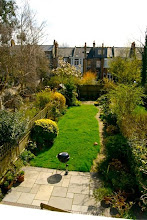
Tomorrow is the tenth anniversary of the Lavender Trust, the charity I set up after my sister Ruth died of breast cancer at the age of 33. It's also her birthday -- hence the date we chose for the launch of the charity -- and had she lived, she would have been 44 tomorrow. I'm feeling such a mixture of different emotions right now. Part of me is in an organisational frenzy, because there's a huge fundraising event taking place tomorrow night, upon which a great deal depends (the Lavender Trust raises all the money for Breast Cancer Care's services for women under the age of 50 -- and 8,600 new cases are diagnosed each year).
But now I've just stopped for a few minutes -- stopped running through the lists for tomorrow night, stopped sending emails, stopped fretting about who is coming, and how much is being donated -- and I'm thinking of my sister. I miss her so much; I wish so much that she was still alive -- still my best friend; still the person I could turn to on dark days, and to celebrate all the good things in life, too... Of course, time heals -- that old adage, often repeated to the newly bereaved -- and I am healed, in that I no longer feel as if part of me has been severed and lost forever. But you don't stop loving someone, just because they have died. You can't turn off love, and make it go away, however many years have passed since the one you loved was still alive.
And that's a kind of miracle, isn't it? That love survives the passing of time, and does not fade, even as we grow older, and more faded. It's like a kind of springtime; the capacity of love to renew itself, with the changing of the seasons, and the turning of the years.
Thus Mayday will always be Ruth's birthday, in my heart.










